These two videos summarize why the Restoration Party is needed and what it will do to solve the nation’s debt crisis.
Part 1 of 2
Part 2 of 2
Maximizing Awesomeness!
These two videos summarize why the Restoration Party is needed and what it will do to solve the nation’s debt crisis.
Part 1 of 2
Part 2 of 2
A two part series summarizing my views on the most common issues as a presidential candidate for the 2016 election. They cover the items listed on this comparison chart …
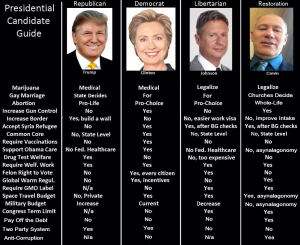
Part 1 of 2
Part 2 of 2
Here’s my take on the 1st Presidential debate 2016.
A brief video summary of my book, the Restoration Party Manifesto: Pre and Post Apocalyptic Alternatives for the Future. It should be available for publication within the year. For the first several chapters in their draft form, click here.
This is a Preface to the early preview version of The Restoration Party Manifesto: Pre and Post Apocalyptic Alternatives for the Future.
I have had three goals in mind in writing this latest book. First, I thought I would take the opportunity to offer my personal opinion on issues that matter to me. I’ve spent a lifetime making partial explanations and it has left me feeling uncomfortably understated. The second is to initiate and found an effective political party that will better handle the problems our country now faces. It seems to me we are in a great deal of trouble and the solution has been there all along. Third, I wanted to pave the way for a better world. I needed to point to a very dark and seemingly inevitable spot in America’s future, to a way to avert it, and to what to do if we don’t.
I’ve been churning the book out one chapter at a time since May 2016, when I first announced my candidacy for POTUS, as I’ve had time while working 80-100 hours/week to pay my bills, since I’ve never received any donations from anyone. There are three things I hope to accomplish with these early chapter releases. 1) To make it known what the Restoration Party stands for, 2) to perhaps attract the help of a patron, an editor and if I’m lucky, a publisher and 3) to get some critiques from my friends.
I can’t overstate how many hours I’ve put in. It’s coming along OK as a side project but I think it deserves much more than I’m capable of personally giving it. Understand that the work is in progress and hasn’t even reached a rough draft status. The pictures used are placed there primarily to make the columns thinner and the text more readable by breaking it up. Some are borrowed in blogger style, and those will all certainly have to be replaced for copyright reasons, including some of the memes I customized. The formatting of the ultimate book is up to the editor. I could use an illustrator too.
As far as obtaining a publisher goes, I think I may have a chance as a non-celebrity. Normally a publisher looks for a platform. The platform here is sort of built into a political party that stands to become quite large if it gets a jump start somehow. The strategy itself is mapped out in the book on the pages already published and I think that should work. It can be self-published I suppose but I haven’t put much thought into whether I should charge for it, etc. and could use some guidance on the matter. It is the first political book I’ve written. Thank you for taking the time to critique the chapters that are available. The present Preface is a temporary one for a work in progress.

I’ve provided enough background in this MyStory series for now. Today, page 8, we jump ahead to the present. I used the word “asynalagonomy” on page 7 without explaining what it means. I told you about my Dad and I learned some things from him but incentivized asynalagonomy was not one of those things. What on earth was I thinking in 1982? My agreement with Dad was only partial and the valid points he made all resided dialectically within an anteasynalagonomic reality my father had no awareness of.
I’m glad that there are only a handful of people who can pronounce “asynalagonomy” correctly. It takes a little practice. An even harder word is “anteasynalagonomy.” The fact that these words are hard to pronounce means they won’t be shared much and that gives me the opportunity to control what people think of them. This is strategic for me. I recognize that we live in a day when the meaning of many words shifts from month to month because of the tools of mass communication. Look up the word on Google and it turns the reader to this web site. That took some doing. Let it be.

I’ve defined it elsewhere here and I’m happy to help out on the meaning and pronunciation any time. “Ante” means “before.” “Synalagonomy” means a trade-based economy. The prefix “a” means “not.” So the word asynalagonomy means “an economy that is not based on trade” and anteasynalagonomy all put together means “the time before a tradeless economy,” or more specifically, “the economy of the time before a tradeless economy.” It means now.
So that’s the meaning. Now let’s practice the pronunciation.
Now repeat this a few times until you’re comfortable with it …
ante a synalagonomy.
ante a synalagonomy.
ante a synalagonomy.
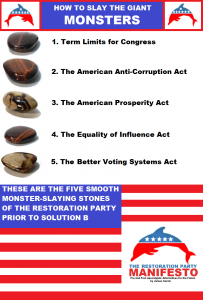
So prior to the total collapse of the sociocapitalist world, which I see as forthcoming if no one heeds my warnings and the Restoration Party is not supported, we have anteasynalagonomy. And after the total collapse of the sociocapitalist world, either we will have asynalagonomy, (hopefully an incentivized form of it), or we will have total anarchy. This last statement comprises the essence of my book, The Restoration Party Manifesto: Pre and Post Apocalyptic Solutions for the Future.
Having some limited control over how these words are used, thanks to my extreme lack of present popularity, allows me all the time I need to build an entire vision around them with all sorts of necessary distinctions. This I find essential in preparing for the collapse of modern civilization lest bad versions of the same solution pop up, as they so often do, and destroy the benefit of the thirty six years I’ve spent contemplating that future time. Most crucial, it is essential that an effective asynalagonomy be incentivized.
But that is a future world and a significant portion of those few who have been told about it, doubt it will ever happen. Even if they can envision such a collapse, they see different types of reboots – very dark ones, where the rich continue to live off the sweat of an even less empowered poor and where a US military steps in to assist them. So fine. That’s why we need Solution B Units as described in the book. As I see it, we are living in an anteasynalagonomic world, and anyone else is free to ignore the fact or disbelieve it. Well that sucks. As for me, I believe in putting life jackets and lifeboats on economies that look like they’re on the same course as the Titanic.

I have to have double vision. One is what I see. Another is what others see. One is our future reality. Another is our present reality. People are taught to see as they do from a very young age. I can’t just give them my vision. I’ve climbed a mountain and what I’ve seen from there is very different than what people who’ve always stayed in the valley imagine. I have to lead them through some very hard places to get them to see what I’ve seen. It’s a step by step process.

When we were children we played board games. Each game had its own rules. There was Monopoly, Life, Risk, Stratego, BattleShip, Chess and Checkers. They were all based on things we can readily understand – war, competition and capitalism. Other games, Trivial Pursuit, Detective and Operation introduced other facets of our world while card games taught us how to calculate. We are wired from childhood for a world that is competitive, that has sad realities. Some people lose. I can’t keep up with the modern gaming world. I imagine its the same. There are roll playing games and there are action games. I’m probably a fool for letting my son play Grand Theft Auto but there have been plenty of opportunities for me to point out that killing people and stealing their cars is wrong. Organized crime is bad. I’d rather he learn that in the cyber world. He also loves his Batman games. He obviously gets the point.
The content and basis of all those games is entirely the stuff of an anteasynalagonomy, where health care costs are rising out of control, where our enemies are increasing, where our annual budget deficits are impossible to balance, where a majority of the population has a negative net worth, where crime is a constant, where I find myself sorting out the best tax and health care policies for a new political party, seeing that the five dominant parties all fail.

I carry two separate visions. One for the future. One for now. It’s not too late to avert an economic apocalypse. But we need to mobilize the Restoration Party very quickly if we are to do so. So for the future vision, read all about incentivized asynalagonomy. It’s where things go if the world keeps ignoring my warnings, treating me like a ghost. To heed the warnings, consider moving your membership over to a new political party, the Restoration Party. Today we talk about tax reform and in my next blog we’ll cover health care reform. I find it far less promising given the difficulty of getting the Restoration Party revved up before it is too late but for now we are in full anteasynalagonomy mode. And here I will remind my readers once again that Restoration Party membership absolutely does not require any knowledge of or belief in incentivized asynalagonomy. In every situation, the Restoration Party is all about the here and now because the people the government is being restored to know and dwell in the here and now. Generally, their minds do not dwell in the future, like mine does, but they do have a profound sense of what is right. So on with the here and now.

Now we get to talk about the tax policy the Restoration Party will fight for over the next few years. It doesn’t make for the most interesting blog unless you are an economist but I’ll give it a summary whirl in layman’s terms. This will require some background. There are several popular proposals out there for tax reform. All of them have simplicity in mind. Everyone agrees the tax code is too complicated. Everyone also agrees that tax loopholes are unfair.
Let’s look at the reasons the tax code is complicated and unfair. First, it is historical. Changing it requires taking what you already have and making additions, by writing new code, or deleting them, by repealing law. It’s not so hard. In theory, it could be done with one comprehensive bill, but the tax code is so long that it is impractical to have one bill that simplifies everything. Congress won’t have time to review it in any given session.
Second, there is a long standing habit of using taxation to incentivize behavior. We incentivize home ownership by allowing tax deductions on interest expense. We incentive charitable giving by allowing deductions for giving to charity. We incentivize farming by offering credits for purchasing farm equipment. The list goes on endlessly. I’d be the last person to complain about providing incentive. But the result is that there is a very long list of such incentives – so long, in fact, that there are many incentives that are more than incentives. They are loopholes. Loopholes provide ways for people and companies to avoid paying tax at all even though they are earning plenty of profit.
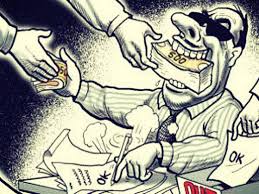
Third, there is systemic corruption. Lawmakers, knowing that tax code is complex and nobody with a loud voice is watching, have the liberty to squeeze both pork and gristle into bills that pass because its better to have a little smudge in a bill that gets passed and has lots of otherwise good stuff, than to have no good stuff at all. That shit needs to be removed but few people have the patience or interest. They love complaining about Wall Street getting wealthy while the working class are exploited but they don’t have the energy to do what is required to change anything. Tax code is boring. They’d rather party in the streets.
Fourth, there are pay offs. The reason pork goes into bills is political favor. Political favor doesn’t just come from constituents. It comes from lobbyists and corporations who fund political campaigns through Super PACs. This is really all the same as point three but it deserves a mention because systemic corruption is the way evil politics works and that is something the Restoration Party will confront head on continually. It is not a matter of representatives actually helping out their voter bases. Their focus is on the jobs they can get personally after their term is up, on the deals they can make under the table, and on raising funds and political support for their next campaign. It’s all about them.

Failure to actually do anything about this has resulted in a very long tax code full of loopholes that ignores the cries of voters. It will keep getting more and more complicated and increasingly unfair, and even longer despite constant complaints about these very facts. The result is the clear need for a restoration of our government back to the American people, so that it represents the voters, and not just the few who know how to manipulate the system. Specifically, those few are the very wealthy, who can afford to pay smart tax accountants and attorneys. The result is we need some force to come and correct the problem that has thus far not existed. That force is the Restoration Party.
But what about the Libertarian Party? What about the flat tax? What about the fair tax? What about the neutral tax?
Don’t be confused by ploys. The neutral tax is … neutral … and reduces or eliminates the IRS while putting the burden of collection on the states. I have no ought about that. I rather like the idea but the flat tax and fair tax, while they may propose simplicity, both fail miserably. They are creations of libertarians. Libertarians are not knights in shining armor. They are just another set of bad guys. Heed my warning on this. Restorationists agree with them on smaller government but not on free market economics and morality.

The Restoration Party demands fiscal responsibility and won’t ignore the burden of the national debt but its objective is not to bolster the wealthy, as it secretly is for Libertarians. Our goal in seeking smaller government is to protect the American people from the oppression of taxation and the impotency of government when government lacks proper funding. A flat tax doesn’t generate enough revenue at 10% or at 20% to eliminate any debt. It doesn’t even balance a budget. Gary Johnson is popular right now and he wants to employ the Fair Tax. It amazes me that the American people are falling for this just because they are so unhappy with their current choice of the lesser of two evils.

The “fair” tax starts with a national sales tax of about 30% that sells itself as 23% using some inclusive pricing trickery that I won’t get into but the number doesn’t matter, as I will explain below. The larger problem is something that it recognizes and readily admits. It has a problem of taxing the poor unfairly and it knows this. Quite simply, the poor spend all their money and the wealthy don’t. Since the “fair tax” is a sales tax, they are taxed on all their income. The wealthy don’t. The wealthy save most of their money so they wind up not only not paying the up to 70% Bernie Sanders would have pushed for, but something close to 0%, depending on how wealthy they are. The wealthier they are, the lower the proportion of their spending is to their net worth. That means they pay a lower percentage of their income than the poor do.
Fair Tax supporters understand that this is unfair to the poor so they made a concession with something called, “prebates.” Prebates are an odd thing coming from Libertarians, as they would amount to the most massive welfare dole out in American history. The reason I call the whole thing a “ploy” is that the dole out not only applies to the poor, but everybody gets a prebate, including your neighborhood billionaire. Pretty much, the prebate is a government hand out that amounts to the amount of money a person needs to spend in a year in order to survive. Or that’s the theory anyway.
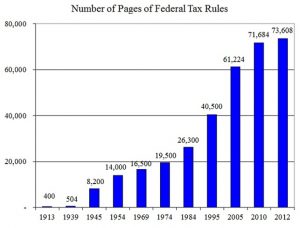
Great. We can all survive. Except that the disaster that follows is that the fair tax disincentivizes spending. The more you spend, the greater your tax. The only way for the Middle Class to save any money is by resisting spending. The only way the poor can survive is by resisting spending. Spending is sort of vital for the survival of businesses. Supposedly, this is made up for by not “double” taxing businesses on the wholesale level. Supposedly, prices go down because raw materials and the cost of labor become cheaper. After all, businesses no longer pay out social security or payroll tax. Their only job in the tax collection process is collecting sales tax from customers.
The big losers with the fair tax are the middle class. Anyone who lives pay check to pay check has to spend all their money, not just those under the poverty line. The middle class gets to watch the rich get richer since they don’t spend all their money, while they can’t escape their middle class status no matter how hard they try. If there was ever a tax proposal that represented capitalist exploitation it is the so called “fair” tax. It is a ruse for the poor with its prebate. In actuality, it profits the uber wealthy, removing almost all taxation from them entirely.
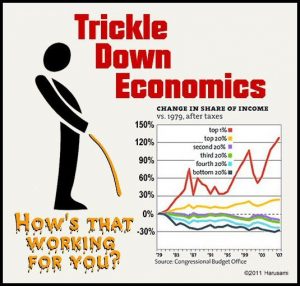
Well, if you are a believer in the power of trickle down economics, then great. That’s how to turn on the spigot. As a matter of fact, I have no complaint about that theory myself. I have long advocated that any money saved by capitalist pigs goes into investments because that’s how they grow their money. I have never wavered from pointing out that ultimately all investments fall back to producing goods and services that require labor or equipment and that means jobs. I see that as inescapable. My opinion and support of trickle down economics has never changed.
However, capitalist exploitation is not about trickle down. It works in other ways. I see big box companies capitalizing on and encouraging shitty job markets so they can pay minimum wage. I see them quickly turn to part-time-only hiring in order to avoid paying health benefits. I see Wall Street recognizing that and doing something even more dastardly than quantitative easing to suck the blood out of workers. They literally want to make sure that there is always a certain volume of unemployed so they can pay less in labor. They will pay off politicians to make sure there are always at least 7% unemployed.
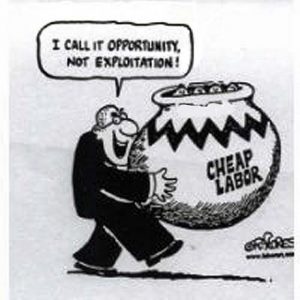
The old 7%, I mean. They were happy to shift the calculation of the unemployment rate so that what used to be called 17% is now called 5%. When I say 7%, I’m referring to the old 7%. Bring the unemployment rate down below the old 7% and it creates a job seeker’s market. A job seeker’s market is when there are many jobs available and not enough potential employees available seeking them to fill the positions. It becomes too expensive to do business when that happens. Service suffers. In a job seekers’ market, some companies can’t even do business because they can’t find the right employees to stay competitive. They may even have to go out of business.
Forget trickle down economics. Unemployment manipulation is where the real capitalist exploitation is. But that’s another subject. For now let’s examine the fair tax.
There are other perks. The fair tax helps employees by eliminating social security and medicare deductions. It doesn’t matter how many exemptions they have. The only withholding will be for voluntary medical plans, retirement plans and other voluntary employee benefits. I’ve got to be fair about saying this. That’s a major plus for the fair tax. The poor working stiff may pay far more than the uber wealthy proportionately, but dang, they do get a boost in the form of what feels like an initial raise, and they won’t be complaining when they receive those prebates either.
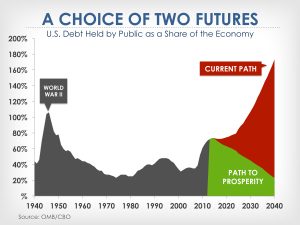
How slick. How insidious. This plan will fail if ever implemented for lack of adequate revenue in an era of prebate fueled hyper-inflation. The problem is not actually on the economy side. It is on the government spending side. Allow me to explain. Let’s start by highlighting some of the other positives in this plan.
First, inflation is not something you complain about when you hold all the comodities and real estate, which is what companies and wealthy people do. Make no mistake, the uber wealthy get uber wealthier with this “fair tax.” They enjoy a free ride on inflation and free themselves of the burden of being taxed all at the same time. Now I have no complaint about people becoming trillionaires. My only concern with that is the way trillionaires push their political weight around and turn countries into plutocracies. But that is a discussion for another day. For now, I should at least point out that knowing this, you can be sure of who it is who is pushing for this type of tax plan.
Second, there is the rest of us. The way the fair tax is designed, everybody expects inflation, because the prices are supposed to increase. That’s exactly what the tax is. It’s worked into the price of everything you buy. You’ve got your prebate subsidizing it. So just don’t buy so much.
Well there’s an interesting conundrum. Buying slows down, and that forces prices down. Money supply increases and that pushes prices up. Which is it? It’s a balance. So I’m going to list here on the positive side that the fair tax is not so inflationary as one might first think. However, saying so requires I temper that by noting that neither does it speed up the economy up. If there is a “balance,” then there is also sluggish growth. So on to the negatives.
The problem with the rich getting richer is not that the rich get richer, it is with the poor getting poorer and the middle class becoming poor with them. With rare exception, neither the poor nor the working class will be able to jump over the canyon to become wealthy. The middle class will become poverty class a heck of a lot more easily. Unless the basic problem of too much unemployment is solved, they will remain one misstep away from the even more inescapable poor house, one job loss, one auto accident, one illness – even just a short term illness.
The fair tax enhances this problem with even more incentive for corruption. Once you boost the existing plutocracy with even more cash, you guarantee the continued corruption of the government. This will ensure that the unemployment rate remains above the old 7% so that there is never a job seekers’ market. In short, the companies fair well, but the poor and the middle class are screwed. This may be something the Libertarians in our midst support, but it is nothing the average American should buy into.
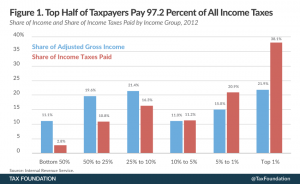
But you may not appreciate or believe in that so let me assure you it gets much worse. As I mentioned, this is a revenue problem. The reality is that the rich presently pay the majority of America’s taxes. That money suddenly doesn’t appear in our tax coffers. The fair tax suddenly shuts off the spigot to the vast majority of its current revenue source – taxes paid by the wealthy. And if that isn’t enough, it also stops taxing corporations. There is no way to make up for this sudden loss and yet maintain a flat tax rate other than to tax the poor and middle class still more. How? By increasing the national sales tax rate. After all, the national sales tax is its only source of revenue – unless … it doesn’t repeal the 16th amendment within the required seven years.
I forgot to mention that. The Fair Tax proposes to eliminate the IRS by repealing the 16th amendment. Repealing amendments isn’t so easy in a partisan world. Let’s be realistic about this. Fair Tax majority support is already fluky. Assuming that after seven years, the IRS comes back and starts recomplicating this, we’ll have both a rapidly escalating national sales tax and the existing mess we’re already complaining about at the same time. Isn’t that wonderful?
Did I say “escalating”? Yes, I did … because of the cost of the prebates. These start out at say, $25,000 for a family of four, and the cost of living in a state is not a consideration, (which is certainly unfair). Then, since more money needs to be raised and taxes will increase, the cost of living goes up. The prebate is based on the cost of living. Therefore, the prebate also must increase. The price of products on the shelves that the poor and middle class have to spend all their money on keeps increasing along with the prebate amounts. The prebate amount keeps increasing with higher and higher tax rates. In each case, it is never the wealthy who pay for it. It is always the poor and middle class. And these are made happy by the morphine shots they get that we call prebates. The trick is to keep everybody comfortably numb.
The pot then begins to boil with the poor and middle class unaware that they can jump out of it. At a certain point, the national sales tax rate reaches 100%. This is inclusively calculated, so a product that costs $1.00 on the shelf, gets a 100% or $2 price. No problem. The prebate pays for it. This still doesn’t produce enough income for the government, so the rate then becomes 200%, or 300% and so on. The price of the product on the shelf doubles or triples accordingly every few months or years. Unfortunately, it is not the business that is controlling the price at that point. It is the government. If people can’t afford it and buying slows down, the price can only be reduced with the loss of government revenue. That means the national sales tax rate must increase still more and with it the prebate amount. The circle never ends.
The result is an inflation that does not benefit the wealthy. It merely slows down the economy. So what are we doing with responsible fiscal budgeting here? We are creating a crisis. We begin by paying out the prebate in advance. This is where it gets its name. It’s paid out so that the people can afford the extra cost of stuff. Paying it out in advance is fine for the public, but not for the government, which needs to live within its means. The government doesn’t have the cash to do that unless it goes farther into debt. Yes, the government too can have cash flow problems.
The prebate amount keeps increasing so this problem doesn’t go away. It only escalates. The result is that the government eventually shuts down. Good grief. We were losing money with the current tax system because of loopholes for the wealthy. The fair tax takes the current pin hole sized loop holes and turns them into one big rip in the balloon. Just say “no” to the fair tax. It’s not just unfair. It is suicidal.
So enough about the Fair Tax. The Flat Tax is no better. It just doesn’t offer prebates or try to mess with the 16th amendment. Let’s move on to the tax policy of the Restoration Party. What do I actually recommmend?
I said that I liked the neutral tax. Like other tax programs, the neutral tax seeks to abolish the IRS. There is nothing simple about the neutral tax though. It sells itself as simplistic but in fact, I should state up front that it is likely to be far more complex. Its complexity comes from allowing each state to determine its own tax methods. What that does is it creates fifty separate tax codes – one for each state.
It is up to each state how simple or complicated they want to make their revenue generation. The neutral tax says nothing about how to scale revenue between the rich and the poor or what deductions and credits to allow or for what purposes. It allows states the flexibility to build tax revenue code that is in their own best interest, which is something their own voters can determine.
It will be the general policy of the Restoration Party that it is the Federal government’s role to serve the states, just as it is the role of each state to serve its residents. Government is for and by the people. The guiding principle of the Restoration Party is restoring public service to the people, by the people, for the people. That means on every level. The role of the Federal government is no different and its tax policy fits in with that consistent view.
My personal view on this matter is not entirely important. What matters is the opinions of the people in each state. A state that wants to attract the presence of the uber wealthy, may want a Fair Tax code. Then again, its residents may strongly object. One thing the neutral tax does by bringing power back to the states is it takes it out of the hands of the plutocrats in Washington. That does not, however, take it out of the hands of the plutocrats in their state. A much closer attention to local politics can be expected and it won’t be dictated by a news feed controlled by national TV. That could get interesting.
My own state of Florida has no state income tax. Our government gets its revenue primarily from travel and hospitality. Our state sales tax is comparatively low. It was 5% when I grew up and has now crept up to 7%. Property taxes are quite low also and there is a homestead exemption here to encourage people to move here. That raises property values, which raises property tax revenue but no where near as much as a simple increase in property tax rates would.
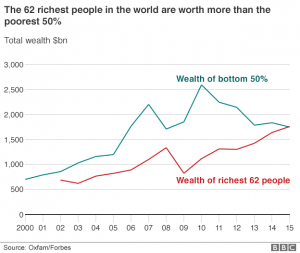
I personally am a believer in real estate property tax and another type of property tax, a stock and bond property tax. I’m all for the elimination of income tax. But it is property tax I would personally advocate. But that’s just me. Other Restoration Party members might vehemently disagree. The rich may not buy much stuff but they do purchase assets. If you want to tax them, then forget their income. That disincentivizes business growth. Tax their assets instead, starting with their real estate. Sure they’ll squeal and complain, but that’s where the money is. It’s not in the pockets of the poor and the working class who live from paycheck to paycheck.
That’s my opinion and I’m sticking to it. But neither is that the policy of the Restoration Party. I always separate the two. The Party itself let’s each state decide. As such, it makes sense for each state Restoration Party to support the neutral tax. Beyond this, it cries out for a restoration of public service to the people. That means breaking up monopolies and divorcing government from the wealthy few. As such, it is likely that measures separating the wealthy from governmennt influence would be taken. Raising property taxes, and especially stock and bond taxes, would not be inconsistent with that aim.
Simplicity can also be served. I don’t want to undersell this. An asset tax is better, in my opinion, than a capital gains tax. Eliminate a capital gains tax and replace it with an asset tax. I recognize this requires repealing a clause in an amendment. Parties are better suited for making such changes than Acts and bills are in themselves. Excellent change takes time.
Simplicity is also served in a practical way. States have smaller bureaucracies. They tend to live within their means better than the Federal Government does. They know better than to make their tax laws hopelessly complex. The harder that is, the more tax collectors they will need. They can’t afford more tax collectors and auditors. Elimination of tax loopholes is in their best interest. Simplicity follows and each state handles it, all while maintaining incentives that make sense for each state.
Now that is policy that I think belongs on the Restoration Party platform. It’s two visions. One for me and one for the party. This one is for the here and now. And there you have it.

It was nice moving back home living with my parents after I finished my bachelor’s degree. My friendship with my father had always been about my accomplishments prior to that – qualifying for the Olympics, hitting it big with a jazz combo. But I wasn’t good enough at either one of those things. I won’t fault him for his enthusiasm or encouragement but there shouldn’t have been any talk about any Olympics and given my personal limits it was somewhat misguided. I had a four year scholarship in diving and it’s helpful to set goals. I dove against Greg Louganis and all the best but I wasn’t nearly talented enough to be an Olympian and the big dream continually put in front of me by his words ultimately left me feeling I had disappointed him. Coming home and living in the house a few years helped build our relationship on more solid ground.
That home was a place called Eden Road, in Palm Beach. Charley Carvin achieved a measure of success in life. Many would say I grew up in a privileged family but such advantage has its limits and it isn’t what many people think it is. In 1966 we moved just three or four houses away from the Kennedy family on the shore of Palm Beach. Dad’s father, Charley Carvin Sr., had taught him the textile business and been quite a personality in New York. Dad rode on his success but he took risks. He was a salesman and a marketing man, who smoked cigarettes and enjoyed two martini lunches, and had a trophy wife, in the style of the fictional Mad Man, Don Draper, living in a mansion in Rye.
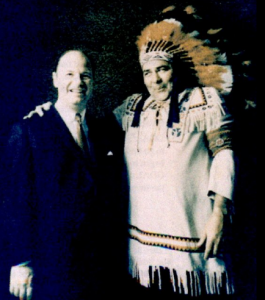
Dad always had stories to tell and they were always larger than life. We always had to check with Aunt Barbara to see which parts were true and where the exaggeration fit in. I’d have loved to have known what actually caused him to resign as VP of Allied Chemical’s Chemstran division. Aunt Barbara affirmed he was Jonathan Winters’ AA partner. The great comedian lived across the pond from us. Alcohol was likely part of it. But did he get fired because of his drinking? It’s nothing he ever hinted at with me. He liked me thinking of him as a superhero. People ask what class is – it’s a mother who throughout a lifetime has nothing but positive things to say about your father, yet never once lied. She was better looking than Betty Draper and she had more class too.
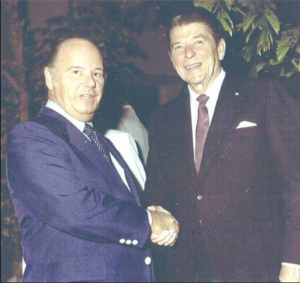
When I got home from college, Dad and I would talk about business and politics every night as we watched the MacNeil-Lehrer Report. The concept of “Country Club Republican” was something that hit home. Dad had been a member of sixty different golf clubs – one of the perks of his old job. Richard Nixon stayed at the house next door to ours when he campaigned in Florida and Dad was a big donor who leveraged his relationships on the island. Ronald Reagan was like the Messiah’s messenger for Dad, and then later Rush Limbaugh. But Limbaugh and Trump became Palm Beach powers after Dad lost his prominence. He had this in common with Trump – they had both received flack from the Town of Palm Beach for starting clubs that were ethnically inclusive. Dad had bought the Palm Beach Pier, which had been condemned for disrepair. He was trying to build an underwater restaurant there. But Palm Beach didn’t want black people walking across the bridge to fish over the ocean.
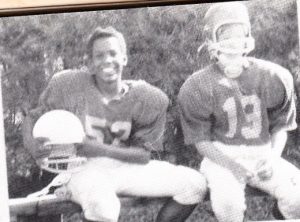
West Palm Beach is known for its racial divide. The disparity between rich and poor there, the workers and the wealthy, forced the distinction between class and classiness. Perceptions of snootiness, noses high in the air, seemed imaginary to me growing up. None of my friends ever did that, so far as I can remember, but obviously there was ethnic separation being imposed by the decision makers. The Jews had their club and the gentiles had theirs. The two did not mix. Blacks were not allowed on the island without permission at all. I can’t imagine what it must have been like for my friends, Kyle Boynton, or Beau and Kim Darden. To me their blackness was a cool thing.
They were just friends, the token black kids at Palm Beach Public School. Nobody had taught me to hate anybody. Their parents must have been wealthy to get there though. I know Boon Darden Sr. was Chief of the Riviera Beach Police. I never gave any thought to how out of place they may have felt. Girls were all I could think about at the time. Then desegregation brought busloads of black children to the island. Some of these kids were unfriendly. My brother got mugged. The days of Christmas parties at the Darden’s house were over. The new black kids clicked up and stayed separate. It was their comfort zone. I don’t blame them. But now I look back and think about what they probably thought about us. We were no longer people. We were the rich. And they didn’t want us in their neighborhoods. Racial division went two ways.
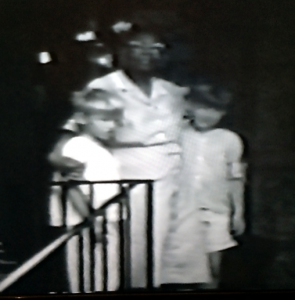
Privilege may mean naivety but it doesn’t mean hate. We weren’t just privileged. We were fortunate. Dad’s Dad, Pop Pop, was no wealthy kid. He was just a hard worker. Naturally, I have to sort out the exaggeration here, but as I understand it, his father, a bartender, had sent him packing out to San Francisco to live with his Uncle Joe because he was the son of a former wife. It is speculated he may not have been legitimate. His Uncle Joe was a cab driver who was later shot in the back of the head. None of that stopped Charley Sr. from moving up in the world. He moved back to Philadelphia and started at the bottom at Murphy textiles and ultimately won the affection of both father and daughter. When you marry into it you’re not earning all your money so I won’t make the claim he achieved the American dream through savings and hard work alone.
No. I’ll be the first to acknowledge that savings and hard work are elusive as hell when it comes to achieving the American dream. Anything going wrong with your health along the way can destroy the entire effort. One accident can lead to a downward spiral. We’re all just one fatal misstep away from failure. And if we manage not to screw everything up while remaining free of misfortune, there’s a certain tipping point for wealth that creates security. At that point you can let your portfolio managers limit your risk. Your interest and dividends will be enough to live on. If enough generations pass while your savings keep working for you and your children, you become a “blue blood.”
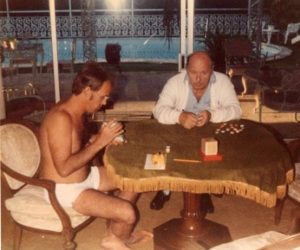
It’s like royalty. You don’t have to be an entrepreneur. But that’s what Dad was. He was a gambler. He was desperate to make it to the top so he could maintain and improve on the lifestyle of his father. Pop Pop was an adventurous and talented guy, but not a gambler. Dad was there, so close to that financial safety zone – but not quite all the way to blue blood freedom. In getting to know Dad, I hadn’t yet learned these distinctions. His great business acumen had been presented to me as a matter of experience and certainty – not foolish risk. But the ugly truth was this. After he resigned from Allied he was free to make his own fortune. He bought a seat belt manufacturing plant. He gambled on what to him looked like a sure thing. And he lost.

My father’s loss was my gain. I could easily have been handed a kingdom. I know that’s what he wanted. Instead, I saw and came to know and understand the life of an entrepreneur. And that is something more valuable than an MBA. I also came to realize there are two very different types of people living in Palm Beach. There are those who will never know the type of struggle and lack of security Dad knew. And then there are people like Dad. There are many on the island who don’t ask questions about money. They are simple people who make friends and enjoy living there while it lasts. And then there are the people who know you’re looking for a loan. You become a pariah when your cash runs short. You have to hide that fact for as long as you can when it happens.

I no longer serve as a loan representative. It’s an unethical business that was eating away at my soul but I’ll never forget the hardship cases I heard every day. Everybody had a story leading up to why they were desperate enough to borrow money from me at rates above 30%. It was mostly car repairs, health problems, lost jobs, evictions. Occasionally it was family members borrowing their own money to care for their loved ones. I respect sacrificial giving. But there is nothing I understand better than the struggle of the entrepreneur. Some would call me still wet behind the ears looking for $20-40,000 to start a business. Then they would tell me about their current debt and income. I knew they weren’t getting any loan. What they needed was an investor.

And then there was the woman who had gotten herself into business but failed. People have no sympathy for failing entrepreneurs. They are angry at them for spending their money foolishly. Banks can’t loan them money – too much risk. I may have been one of the only people on this planet qualified to offer comfort to a woman like that. Entrepreneurs have to borrow money from friends and family to get a start. Friends and family may loan you money for a business once, but seldom twice. You’ve got to show them a return on their investment the first time around. You can’t have a better idea down the road. It doesn’t work. If you fail, you don’t just lose your savings. You lose your family and friends.
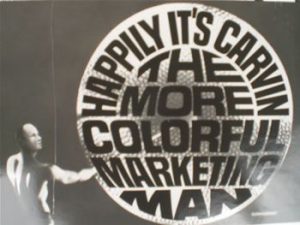
The serial entrepreneur knows nothing in this world other than how to have a dream and make it happen. The risk they take when they attempt to live out their dream involves the loss of everything that matters most. It’s not just the money. It’s the relationships. It can take a lifetime to gain back forgiveness and respect – most never offer it. Those who suffer from substance abuse addictions enjoy far more understanding than failed entrepreneurs. And yet if you look at the memes on the Internet – one after the other encourages entrepreneurs to never give up. Never giving up is the core mantra. Imagine a world where addicts are encouraged to never give up on their drug induced euphoria. That’s what it’s like for entrepreneurs. They can’t escape how they are wired. They are told to get real jobs by those who think real jobs are what normal people do – people who save their money, pay their insurance, and live within their means. Such talk comes from the same people who reject the term “living wage.” On principle, you should be able to earn $2 dollars a day and your family should be just fine. It doesn’t matter that living within your means means being homeless.
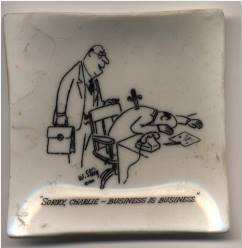
What a very different world the entrepreneur lives in compared to the corporate mogul, who calls himself an entrepreneur. The mogul is really just a portfolio manager. Even the venture capitalist is all about valuating businesses and mitigating risks. Passion for a dream is a distraction. The angel investor comes to save the entrepreneur’s day but is otherwise known as a shark. If you want cash to run a business – go to your family and friends. If you run out of family and friends to borrow from because you’ve failed once, produce a miracle. Produce a miracle because that is what is expected of the superheros we call entrepreneurs. The moguls take the name. The sharks live on the blood of real entrepreneurs.
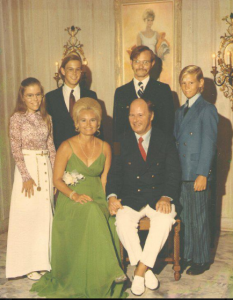
Who is the true “serial entrepreneur”? Is it the person who has dreams they can’t give up on even if they fail? Is it the person who reinvents it and keeps coming back? Or is it the one who is lucky enough to pick more than one good start up to risk some of his spare money on? I mean no disrespect to the investor but the true serial entrepreneur is the one with the passion so great that he puts everything he has into it. Anyone worthy of the name “entrepreneur” will come back to life after everybody thought they were dead. There was a brief time when Dad had enough money to be the portfolio manager type but he threw everything he had into his big bets. The company owner takes on the risk. That’s why they reap the rewards if they succeed.

It was good to learn this from Dad as we watched the news every night. Crossfire came on next. And it’s an irony. He knew the stress his business put him through and saw that I wanted to own my own business too. He’d encouraged me to get into music and to dive against impossible odds. And then he did what he could to discourage me from going into business. He wanted to spare me the heart ache. I was a savings counselor at a Savings and Loan. You could get a T30 Certificate of Deposit and earn 18%. Before his bankruptcy, Dad was paying out over 30% on the money he was borrowing to keep his business afloat. I saw it ripping him apart. Somehow several years later he managed to pay off the IRS and sell the house on Eden Road. Working at a bank was about as interesting to me as watching grass grow.
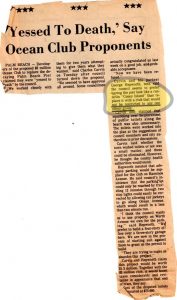
Donald Trump and Rush Limbaugh moved onto the island right around when we moved off. Now that was exciting. Trump turned Meriwether Post’s house into a country club. Corinne used to babysit for Timmy Griffin there and I had had a few peeks. As Dad’s health kept heading south, his stories kept coming in. He was jealous of Trump’s bankruptcies, him and Jud Kasuba. “If you’re going to have a bankruptcy,” he would say to me, “fail so big the banks have to bail you out.”
As he embraced his failure, Dad’s stories grew more spiritual. He was Catholic and he wanted me to be a priest. He couldn’t tell me this, lest I lose respect for him, but to his mind it was essential in business to “sell the customer what they need, not what they want.” It was one of the eight slogans in his Total Marketing Concept. The customer may not really need it. But you have to believe they do if you’re going to market your product. Enthusiasm and excitement. That’s what really matters. He knew my sense of ethics would never swallow that. I was all about delivering what you promise. He was right.
That was Dad’s dirty little secret. He preached Republican libertarianism and introduced me to Walter Williams. But he knew the ways of this world and there was a disconnect between the supposed positive morality of free market capitalism and the world he knew as a marketing man. Sales wasn’t about selling people what they want. It was about showing them they need what you want them to want. If that meant dealing in excitement to sell an illusion, so be it. When a person buys an illusion it isn’t a fair exchange of values. It is one person robbing another. Dad saw I had my mom’s innocence in a world full of guile. He wanted to keep it that way.
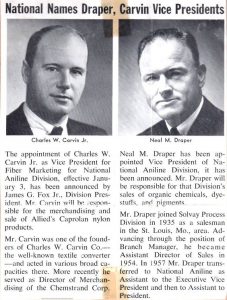
But Dad was not going to be able to stop me. He set me in motion to think globally when he taught me to think like an Olympic champion. And when he talked about my future in music, it wasn’t just so I could play to my children. Success was defined by the names of well known musicians. It didn’t matter if I lacked sufficient talent, or not. There was no such thing as half-way in the world Dad showed me. Nightly political discussions magnified this because together what we talked about was how to fix the world. Dad was very animated in his opinion. He sold what the world needs to his believing son. If you hate Ronald Reagan for whatever reason, just pretend he was a Democrat. It makes no difference. Dad built up in me a fire for changing things. We had a vision for a better world. And when he did that, it wasn’t something he could put out.

Then came 1982. I didn’t go to the Catholic Seminary to be a parish priest. I went as a layman wanting to lead laymen. I had been working at the Savings and Loan for two years at that point and had just taken a job with the US Postal Service. I moved into a town home and it’s probably a good thing I moved out of Dad’s house because it was while working at the S&L that it suddenly dawned on me that capitalism was the problem rather than the solution. I had a job that involved nothing but shifting people’s money around. I wasn’t producing any real goods or services that tangibly improved anyone’s quality of life. It occurred to me that the vast majority of jobs were actually like that, including Dad’s marketing job at Allied. It was a horrible waste of human effort. I could be making widgets with my hands or serving tables or fixing toilets and accomplishing more with my time. Delivering mail was liberating. Part of it was bills but another part was nice letters and packages.
People used to write letters.
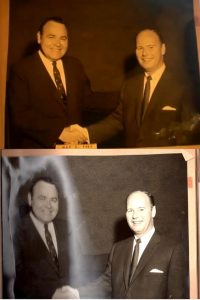
That was when the concept of an incentivized asynalagonomy came to me. I entered that seminary with this on my mind, and surprisingly, my idea for a money-less economy was very well received and I quickly found myself being introduced to a cadre of Marxists at the Catholic Regional Seminary.
But my favor with them was very short-lived thanks to the influence of my Dad. Coming home with a report of them met with all the reasons Ronald Reagan was needed so badly. My mom, a Presbyterian, was relieved to hear of the Catholic Communists. Perhaps it would dissolve some of my Dad’s criticism of her pastor for preaching unilateral disarmament at a time when what was needed more than ever was a total commitment to the policy of Mutually Assured Destruction. But Dad’s Catholic faith had blinders to such fair criticism. God’s special providence was on the Catholic Church. He would stand on the idea that the gates of hell couldn’t prevail against it. The problem of Communism at the Seminary was going to go away just like all heresies do over time.
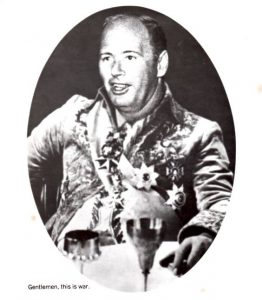
Maybe the Communists would but not the Democrats. They were at the Seminary to stay. And by 1986, the Boland Amendment was preventing funding of anti-Communist efforts in Latin America. Ollie North was raising funds in ways that got Reagan in trouble and a not so well remembered guy, Sam Hall, an Olympic diver turned counter-terrorist became my new role model. Dad brought me back around full swing cleaning the seminary of its heretical liberation theology. I even found evidence that the MaryKnoll sisters were shipping guns to the Sandinistas. Well, that certainly wasn’t very peaceful. And it wasn’t something I should have shown my Social Justice teacher, a Trotskyite. The Seminary no longer offered the classes necessary for me to complete my Masters in Theology degree after that. Well at least they wouldn’t ship me off to some parish assignment in the middle of nowhere as they were known to do with their controversial priests. I’d accept the incompleted degree as the price for my freedom to actually change the world. Youth is such a beautiful thing. You can do anything.
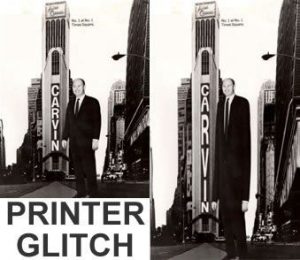
So here are just a few closing thoughts for this page in my story. First, I am not my father. I listed to my father. I considered the Republican Party and became familiar with Libertarian ideology. I accepted the trickle down theory as axiomatic for capitalist paradigms and could see how government had done nothing but destroy my father’s hopes and dreams. I was never a Communist. Those people believe in revolution. Violence is inefficient. Communism is even more inefficient than incentivized tradeless economies are efficient.

And the whole capitalist thing? My dad’s example was proof positive that it takes money to make money. A key trick to capitalism is capital. The large corporation has distinct advantages over the individual. Being a shareholder is not being an entrepreneur. It is taking a free ride on a system the way a surfer takes a free ride on a wave if they are lucky to be positioned for doing it at the right time. It’s not like a corporate board doesn’t have some input. A surfer has to have some instinct and experience and has to paddle and have balance. Even a portfolio holder needs that much skill. But entrepreneurship is dead in America if that’s all it is anymore. Is entrepreneurship dead? My family hates my Dad’s failure. They hate my failure.

And what about the Communist thing? Incentivized asynalagonomy understands that Communism fails because the people have no incentive to work. They can’t even call anything their own. Socialism and Communism have never achieved more than state Capitalism. They’ve never been asynalagonomies, much less incentivized ones. There is nothing in common between them. Communism is an illusion. And the idiots of this world are trying to force it on us through violent revolution. Or they were. Even the MaryKnoll nuns have helped them. It’s just one more raw marketing deal in this world.
And what people need, not what they want, is incentivized asynalagonomy. “The duller the product the greater the prospects for success,” my Dad used to say. That’s well and good, Dad. But you’ve got to have a marketing organization if you want total marketing. I haven’t given up on the idea this can’t be done without cash. Just show me how to find my partners.
The majority of crimes are related in some way to money or the things it can buy. Either the fear of the loss of it, the envy and covetousness or pride associated with it, or the illegal, immoral or unethical ways of obtaining it. Not every crime is caused by trade but a significant percentage of them are. There are also vices that would not exist if there was no profit motive behind selling them. There is no sex trade, slave trade or drug trade because there is no trade. No one kills anyone to obtain anything. Nobody robs banks. Their is nothing to spend. People get what they want and need not because they trade for it after gaining it by hook or by crook but because needs are acknowledged publicly through the HAND System as worthy of being obtainable so long as the privilege is earned through some form of public service. That service is not a direct exchange between two people as in a trade and it is illegal to store things up for trade beyond privilege. Doing so is called hoarding and creates the risk of lost privilege, which is a very bad idea.
Stepping back and forward one more day in the life of, I bring you to my educational pursuits. I am a constant student.

I also cry at movies when they have a very high impact. A close friend of mine recently passed away. He founded the Brotherhood of St. Symeon the New Theologian. I had been a supporter of his for years and for a time was on the Board of Directors. The ministry was controversial within the Orthodox Church and in some ways I was critical but the late Archimandrite Eusebius Stephanou occasionally published some of my writing, wondered at my insight, and whenever I saw him he would always lament that there weren’t enough wealthy patrons to support me in a ministry of writing, though I was a layman.
The brothers would read from the writings of St. Symeon the New Theologian and discuss them regularly. St. Symeon was all about tears. The type of tears St. Symeon described are those that happen when there is close engagement in a profound theological love relationship. They are not just tears of joy. They embrace every Christian mystery.

People cry at movies because of a close engagement in a drama. I’m convinced that it is a gift of imagination they have that causes them to emote this way. It is a form of empathy. The healthy body is designed to relate to others, to experience with others, through active engagement of the mind and heart, in a participation between their knowledge of their own experience and what they understand and can relate to in the experience of another.
Not everyone has the gift of tears. Not everyone is an empath but those who are are often thought a little strange by those who are not. For Symeon, continual tears were the appropriate result of a healthy relationship with and in Christ. He did not talk just of agape love, a higher cerebral love divorced from the body. He spoke of divine eros, a love relationship with God that produced a continuous flow of tears. These were not just tears of joy for Symeon. They were tears of profound communion. I’ll spare you the special theological terms behind it, reserving those for my Cosmostrophy page, where I feel more at liberty to discuss my religion.
The reason I am blogging here in My Story is so you can know who the founder of the Restoration Party is and better understand the values I would like it to embrace. It is an elaborate way to share where I am coming from. It will provide some context for the proposals, viewpoints and mission reflected in the Restoration Party Manifesto that I am in the midst of writing as I continue to blog.

I do realize that political enemies will come along and take the things I say out of context so that I may be misrepresented. It’s the way of the world. Blogging here provides a simple way to access the whole picture and acquire my personal understanding of the truth. I am a Christian but I am not on the Christian right. I am Orthodox but I am a critic of Orthodoxy and of Christianity as a whole. I am associated with the Brotherhood of St. Symeon the New Theologian but have complex views when it comes to charismatic movements.

And the truth is that, like St. Symeon, I am a man of many tears. When other people hurt, I hurt with them. When they rejoice, I rejoice with them. This week, I had approximately 300 loan requests. Of those, approximately 90 cars had broken down, 80 jobs had been lost, 5 husbands had died, 2 wives, 3 sons, 4 had cancer, 11 had spouses with cancer, 7 fatal accidents, some lost all they had through law suits, others gave all that they had caring for their elderly parents, 20 cars in tow, 14 on the verge of repossession, 120 had moving expenses, about 40 moves were simultaneous with cars breaking down. It was like I was reliving my own life again through them, and all like me, were broke enough to have no credit or savings sufficient to handle the impact. They were all desperate enough to call me, knowing they would pay sky high interest rates. There were also 4 weddings and about 20 vacations. It’s not all bad until you see they can’t actually afford these things.
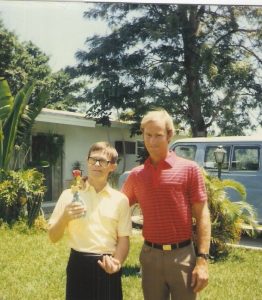
One of my last calls was a girl living in a group home. My brother had lived in a group home like that. She had Down Syndrome like him. It hadn’t occurred to me that the Internet would ever become accessible to Down Syndrome people living in group homes but here she was trying to get a loan to pay for her $330 medical bill. Her medical bill was all of $1.33 greater than her social security check. I get paid commission and it was my job to upsell her while I issued her the $500 loan she needed for the $1.33 expense. A better loan rep than myself would have sold her a credit monitoring service for $39/month and credit repair for $99/month, both of which she qualified for, as she neither knew her credit scores nor had good credit. Had I been a fiction writer, I would never have thought of such a scene. The reality is something I will never be able to remove from my mind.
What this situation does to an empath with a conscience is it prompts passion. It makes me want to fix a seriously screwed up system before it dries up my tears, numbing me with the repetitious sales pitch that drags my soul to hell. When I previously mentioned my work made me cry, some of my friends contacted me because they were concerned about me. They needn’t worry. I’m not suffering from depression and I’ve never had a suicidal thought in my life. It’s when the tears stop that I start wondering what is wrong with me. It’s when a person doesn’t care that the disease becomes evident. As we consider reality, there shouldn’t be a dry eye in the house. But we are sick.

The Orthodox like to distance St. Symeon from the charismatic movement. They think Pentecostalism is demonic and believe he can only be understood in a monastic context. After all, he was an abbot and there is little evidence he spoke in tongues or conducted healing services as he promised material blessings in exchange for faith gifts.
And speaking of demons, the Orthodox view spiritual warfare very differently. The devil is spoken of and his demons but defeating them is largely a matter of overcoming passion. It’s passion that is the enemy. Orthodox exorcism is all about overcoming fleshly passion, which is one reason the tears of St. Symeon are anything but Pentecostal. They view Pentecostalism as a carnal replacement for genuine spirituality. Their fasts are not viewed as entreaties to God so much as exercises in overcoming desire. It is all about discipline. The mind removed from the things of this world is freed up to contemplate the things of the next.
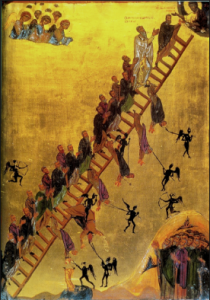
The role of the demon in the life of a Christian is that of an annoyance. They are sent by a master of folly to distract and drag down a spiritual aspirant who for lack of discipline willfully engages in their temptations. Whereas the Pentecostal will offer verbal incantations against the demons and suppose these have rendered spiritual victory, the Orthodox finds victory only at the end of life’s journey in a soul that has climbed to spiritual heights in his own liberation from passion. It is not as though there is no passion. It is a passionate dispassion that evolves as he comes to grow in his love for Christ and by that is the devil defeated.
In the meantime, all that happens in life happens in the permissive will of God, who permits the demons to tempt man in various ways. Destruction and loss are like that. We get too attached to things. We need to realize who we really are. And with that in mind, I will proceed with my story.
I was a music composition major when I was in college. I chose it because I had a strong sense of calling to be a writer. Actually, what I wanted was to be a movie producer – an interactive movie producer -but I had to take things one step at a time and wait for the technology to evolve. It was the music that reached the soul so I thought I would start there. I had a sense that I should write something that would change the world for the better – that media was capable of affecting people in positive ways. I wanted that to happen. It was a realization I had my junior year and it wasn’t a bad one. Prior to that I’d been in it for the wrong reasons. I was seeking admiration.

In the 1970’s the University of South Carolina music department placed much emphasis on the avant-garde. It was futuristic. Every music course pointed forward through history and asked what would come next. I wrote a paper at that time on a forthcoming digital age and purchased my first synthesizer in the hope of developing it. I was no prolific writer back then. I was new at the craft but I managed to work up a portfolio at that time, which included some symphonic works, string quartets, jazz combo pieces, madrigals, canons, some counterpoint for piano, background music for poetry readings, some polytonal polyrythmic stuff in honor of Charles Ives and a trombone trio sonata in the quartal style of Hindemith.
Some of these works, including the first movement of the last, were performed at Seminar and received quite nicely there and then on my final day of school, the final performance of my trio sonata was scheduled so that my parents, who were driving up from South Florida to take me home, could hear it.

I was excited about the future and the lessons I had learned. I had learned about John Cage – a man who used elements of chance in music, and Charles Ives, who saw music three dimensionally, and sought to portray reality by music as he walked through a park on the Fourth of July. They had taught me to look at the interaction of the world itself as part of the music. I had also studied Indian music and learned to see music as a message from God. I had learned to look around me and find music in everything and even to see everything as music. I had learned to appreciate and came to believe in God as a master orchestrator of all, making music out of chance, simplifying the complex in ways that united in a single epic story.
The night before the trio sonata I was on the verge of telling my parents about all of these things. I wanted them to be excited with me and feel my time at USC had been well spent.
But that wasn’t meant to be. In the juggle of packing my things, I had somehow lost my entire music portfolio. I frantically searched my apartment, doubling back through my suit cases and opening up trash bags. I darted over to my locker at the music building and even went to the stadium, where the jazz band rehearsed. Nothing. I then showed up to the performance and the other two players failed to come. There sat waiting my parents and my music teacher.
College students. Finals week. Who would have expected them to show up to something they got no credit for? I should have known better – and they had their parts with them. They had taken them with them to practice. My parents were convinced that no trio sonata had ever been written and that I was lying to them. Fortunately, my composition teacher came and assured them he had seen it with his own eyes. He passed me, knowing I had done the work, but the thirteen hour drive back home was an uncomfortable one and I had no portfolio to build on. Suddenly my future looked very bleak. I took a job at a Savings and Loan.

I have no regrets about my lost portfolio. There was one thing I understood. That event was merely the opening movement of a larger orchestration piece. I stopped to hear the sound of it. I was enjoying how the story, told polysymphonically in the form of all events, was unfolding. I respected the writer. I was drawn to a masterpiece in the making. It was as if the music, as if a song, was just starting with my journey back to South Florida with my father and mom.
My academic career didn’t end there but I will point out here that each new chapter of my life has begun with a sort of tragic ending involving loss. In the music business we are taught to observe and analyze form. We know that the ending of a piece by Beethoven is going to have a significant build up. The end is not really the end just yet. It gets better and when it is complete it leaves the listener fully satisfied. It’s like great sex that way, with climax upon climax in one final long and wonderful climax.

That’s how I’d like my life to be. I’d like it to end with perfect satisfaction. I believe the orchestrator of all things has that planned. I’ve seen the patterns the way I see the themes and motifs of Beethoven finales long before their recapitulation. A good ending is set up from the beginning. Destruction and loss are little more than doorways to new chapters in the book of life.
I’ll tell you about the pursuit of my Master’s Degree on another page. That also involved gainful loss and that will be a theme here. I told you about the salmon and the ant on page five. It is a story of loss and rebuilding. All of this will lead up to Chapter Eight of the Restoration Party Manifesto. Our country is about to suffer very great loss.
That is sad but I am not a sad man nor do I glory in anyone’s loss. Never in my life have I ever desired loss and I do not desire it for this country. That is why I have been doing everything I know how to persuade others to implement Solution A, as outlined in Chapter Two of the Manifesto, as also the subsequent chapters I am presently working on. I am not a passive aggressive type who would sabotage himself just to live out some sense of unworthiness and neither do I want that for America.

No, I believe my losses have been a part of the orchestrator’s curriculum. They are there to teach me to teach others that we can rebuild and that when we do rebuild we can build even better than we were first building. There is a storm coming and we are about to experience very great loss. I have referred to it as an apocalypse. It is that bad. I am going to write some songs and in them I will spell out the path to reconstruction. We will be without electricity and government, but maybe enough of us will remember the songs, that these little curricular interests of mine will be shared. We will rebuild. We will get through this. God willing, I will provide a road map to restoration and we will follow it.
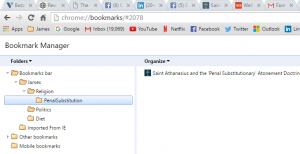
My Internet library burned down two weeks ago and I didn’t even know it until this morning. I’ve been compiling it since Google Chrome was invented. I didn’t realize until this morning that I deleted all the bookmarks I’ve ever been compiling on Chrome.
That means basically, all my research references are gone for any endeavor I’ve had since about 2006. A search to retrieve Chrome bookmarks shows me the best there is is an undo workaround for a single browser session … http://www.howtogeek.com/111784/how-to-recover-accidentally-deleted-bookmarks-in-chrome-firefox/ .
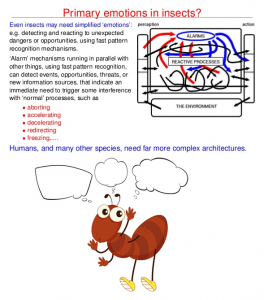
As as heads up, the way this occurred is that I was logged in as my wife (I thought) when trying to set up her computer. She complained that she didn’t need all those bookmarks. Thinking that since I was logged in as her and that Google had just duplicated my bookmarks when it created her account, I started deleting all the stuff that was mine that she wouldn’t care about. Basically, I had it all in one folder that was hierarchical and there were a few other top priority bookmarks. Deleting these made room on her book marks bar. It also erased about 5000 hours of my work. I have discovered this morning that it is not retrievable.

Currently, I have a car that has been in the shop for two weeks because of an air conditioner problem. Actually two shops. I brought it into the first shop, they vacuumed and charged it with freon and gave it back for free. That was nice. Then I started using it over the weekend and the a/c went out again after the car heated after about eight rides despite the fresh charge.

So after five days testing until the problem duplicated so that the first shop could locate the leak and then another five days waiting for the appointment with the inspector that the warranty company required, the problem was still not fixed.

This is, of course, the third major problem I’ve had with this used Kia since I bought it April 30th. I had to replace the shocks six days after I bought it and I had to replace the fuel pump assembly a month later because of a fuel reserve leak that required me to replace the fuel pump and all of its related parts. The warranty covered the fuel pump as it is listed but the warranty company refused to honor the warranty because it was not the pump itself that was damaged.

But that’s just the car. There’s also the people. Many of my friends know that my wife, who never smoked or drank and stayed physically fit, had a stroke when she was 38, leaving her partially paralyzed for life and chronically unemployed. Others know about my sister and her stroke and that she is the reason we moved to Tallahassee as her husband abandoned her in a nursing home. Not so many people know about my sons. Not every story gets told. I’ll simply summarize by saying something every parent knows – much patience is required, much time, much expense.

Then there are lost friends. Three of my wife’s four bridesmaids no longer talk to her. The reason is that they don’t like me. They don’t like me because I refuse to quit. They believe I should have a normal job and be like a normal person and think more like they do. They won’t talk to her because they want her to leave me or me to change or something like that, as if I could. Her half sister did the same. It is very lonely being the wife of a relentless entrepreneur. People are controlling that way but for her it is a very great loss. And for me it is a very great source of sadness thinking that my wife has lost so many of her very best friends on account of me. I have to comfort her when she cries.

In my life, I’ve had computers break down on me at times when I could not afford back ups and back ups I’ve paid for that failed when I attempted to restore them. The bottom line is the loss of the majority of the work I’ve done in my life. I toted around jazz drives, Syquest drives, floppy sequential back ups, and five large computers for years, carrying them to at least seven places we moved to in the hope of restoring the data. I took it all to a computer repair shop about ten months ago to see what I could retrieve. I had managed to save some of that data onto an external Seagate drive that I had collected back ups to. At last I had the hope of having all my remaining data on one drive. I asked to have the retrieved data be added to the other data I had already saved, but they made a mistake and wrote over the other data. This made me lose all my recent data. And the previous data was too corrupt they said to copy. It left me with very little.
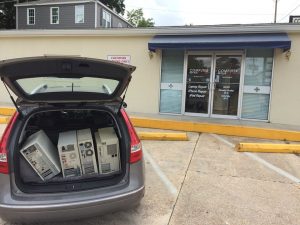
Other data losses were due to deliberate sabotage. It’s easy to sabotage people when they are low on cash and can’t afford proper redundancy. At the turn of the Millennium I had started a business from my home. I invented something that was in high enough demand to launch itself to the 105th most visited web site in the world at that time without having to pay for advertising. Lisa and I watched the WebTrends Analystics with amazement together. My service provider informed me I would need to pay for a server farm to handle the accelerating capacity. I lacked the cash for that for the rapid site development I needed and, as if to kick me down a little further, it was at that same time that my developers accepted a contract from Jeb Bush for MyFlorida.com and ceased all private sector work.

I had to hire new developers very quickly at the same time that I needed the new servers but on a shoe-string budget. First I accepted a bid from a group from India. They were nice but they were incapable. Time was ticking. A month later I accepted a bid from a group from New York that was also doing the work for SesameStreet.com. They agreed to work for $10,000 and 5% equity. I gave them access to the site. What they didn’t tell me was Sesame Street had backed out on them. When that happened, they became cash short like me, so before they went bankrupt they started outsourcing their work.

They hired some developers from Russia and as their company continued to fail, they wound up not paying their Russian developers. They gave access to the Russians to my server through a piece of code called a “back door.” When the Russians didn’t get paid, they got angry and systematically imploded all eight of the cartridge back ups and destroyed my entire business from within and left me a calling card, “Russian Hacker”, among the files in the data that remained. The 30,000 members in my database were then held up as hostage, as they proceeded to send an email saying they could restore my data if I paid them. The business had already been destroyed by then. I had already sold my car to pay the developers. It was all I had.

The loss of my data now makes all of this impossible for me to prove. Only my wife remains as a witness to what has happened in my life. Only my own soul survives as I look to rebuild.

Somehow these great losses are symbolic of how my brain works. When I talk with people, I don’t use my memory. I use my soul. It is my soul that remembers. This is why I rarely express the same thing the same way twice. It’s why I don’t memorize speeches. I have to recompose everything that I say and think on a continual basis. My data centers work differently than those of other people.